Top 10 Journalists Who Changed History
When you think of individuals who've truly made a mark on the world, journalists might not be the first that come to mind. But, think again. Journalism, in its purest form, is about more than just delivering news. It's about telling stories that matter, shedding light on the truth, and, in many cases, altering the course of history. This list is a tribute to those journalists who didn't just report the news but changed the narrative, challenged the status quo, and, in doing so, reshaped the world we live in.The Top Ten
1 Ida B. Wells
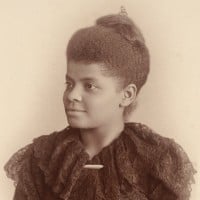 Ida B. Wells was a pioneering African American journalist and activist who led an anti-lynching crusade in the United States during the 1890s. She was also a founder of the National Association for the Advancement of Colored People (NAACP) in 1909. Wells used her investigative journalism skills to expose the injustices and brutality of lynching to a wider audience.
Ida B. Wells was a pioneering African American journalist and activist who led an anti-lynching crusade in the United States during the 1890s. She was also a founder of the National Association for the Advancement of Colored People (NAACP) in 1909. Wells used her investigative journalism skills to expose the injustices and brutality of lynching to a wider audience.
 Ida B. Wells was a pioneering African American journalist and activist who led an anti-lynching crusade in the United States during the 1890s. She was also a founder of the National Association for the Advancement of Colored People (NAACP) in 1909. Wells used her investigative journalism skills to expose the injustices and brutality of lynching to a wider audience.
Ida B. Wells was a pioneering African American journalist and activist who led an anti-lynching crusade in the United States during the 1890s. She was also a founder of the National Association for the Advancement of Colored People (NAACP) in 1909. Wells used her investigative journalism skills to expose the injustices and brutality of lynching to a wider audience.
2 Bob Woodward
Bob Woodward is an investigative journalist who, along with Carl Bernstein, broke the story of the Watergate scandal for The Washington Post in the early 1970s. His reporting on the scandal contributed significantly to the resignation of President Richard Nixon. Woodward has continued his career in journalism, writing numerous books on American politics and the presidency.
3 Carl Bernstein
Carl Bernstein, alongside Bob Woodward, played a key role in uncovering the Watergate scandal, which led to the resignation of President Richard Nixon. His investigative work set a high standard for political journalism. Bernstein has since worked as a correspondent and written extensively on American politics.
4 Katharine Graham
Katharine Graham was the publisher of The Washington Post during the pivotal period of the Watergate scandal. Under her leadership, the newspaper achieved national prominence for its investigative journalism, notably supporting Woodward and Bernstein's groundbreaking reporting. Graham's tenure is celebrated for transforming the Post into one of the leading newspapers in the United States.
5 Theodor Herzl
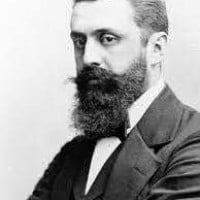 Theodor Herzl was a journalist and the father of modern political Zionism. His journalistic work in the late 19th century, including the publication of "Der Judenstaat" (The Jewish State), laid the groundwork for the establishment of the State of Israel. Herzl's vision and advocacy through journalism had a profound impact on Jewish history and the Zionist movement.
Theodor Herzl was a journalist and the father of modern political Zionism. His journalistic work in the late 19th century, including the publication of "Der Judenstaat" (The Jewish State), laid the groundwork for the establishment of the State of Israel. Herzl's vision and advocacy through journalism had a profound impact on Jewish history and the Zionist movement.
 Theodor Herzl was a journalist and the father of modern political Zionism. His journalistic work in the late 19th century, including the publication of "Der Judenstaat" (The Jewish State), laid the groundwork for the establishment of the State of Israel. Herzl's vision and advocacy through journalism had a profound impact on Jewish history and the Zionist movement.
Theodor Herzl was a journalist and the father of modern political Zionism. His journalistic work in the late 19th century, including the publication of "Der Judenstaat" (The Jewish State), laid the groundwork for the establishment of the State of Israel. Herzl's vision and advocacy through journalism had a profound impact on Jewish history and the Zionist movement.
6 Gloria Steinem
 Gloria Steinem is a journalist, feminist icon, and co-founder of Ms. Magazine, a landmark publication in the women's movement. Her undercover reporting in the 1960s, including a famous exposé on the working conditions of Playboy Bunnies, brought attention to issues of gender equality and women's rights. Steinem's work has been influential in changing societal perceptions and advocating for women's liberation.
Gloria Steinem is a journalist, feminist icon, and co-founder of Ms. Magazine, a landmark publication in the women's movement. Her undercover reporting in the 1960s, including a famous exposé on the working conditions of Playboy Bunnies, brought attention to issues of gender equality and women's rights. Steinem's work has been influential in changing societal perceptions and advocating for women's liberation.
 Gloria Steinem is a journalist, feminist icon, and co-founder of Ms. Magazine, a landmark publication in the women's movement. Her undercover reporting in the 1960s, including a famous exposé on the working conditions of Playboy Bunnies, brought attention to issues of gender equality and women's rights. Steinem's work has been influential in changing societal perceptions and advocating for women's liberation.
Gloria Steinem is a journalist, feminist icon, and co-founder of Ms. Magazine, a landmark publication in the women's movement. Her undercover reporting in the 1960s, including a famous exposé on the working conditions of Playboy Bunnies, brought attention to issues of gender equality and women's rights. Steinem's work has been influential in changing societal perceptions and advocating for women's liberation.
7 Edward R. Murrow
Edward R. Murrow was a broadcast journalist who gained fame for his radio broadcasts during World War II, bringing the realities of war into the homes of millions. He later transitioned to television, where his investigative journalism, particularly on the CBS program "See It Now," challenged McCarthyism and contributed to the public's skepticism of the Red Scare. Murrow's legacy includes a commitment to the highest standards of journalistic integrity.
8 Hunter S. Thompson
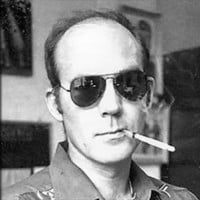 Hunter S. Thompson was the founder of gonzo journalism, a style of reporting that blurs distinctions between writer and subject, fiction and nonfiction. His most famous work, "Fear and Loathing in Las Vegas," remains a landmark in American literature, offering a scathing critique of the American Dream. Thompson's unconventional methods and vivid writing have left a lasting impact on journalism and literature.
Hunter S. Thompson was the founder of gonzo journalism, a style of reporting that blurs distinctions between writer and subject, fiction and nonfiction. His most famous work, "Fear and Loathing in Las Vegas," remains a landmark in American literature, offering a scathing critique of the American Dream. Thompson's unconventional methods and vivid writing have left a lasting impact on journalism and literature.
 Hunter S. Thompson was the founder of gonzo journalism, a style of reporting that blurs distinctions between writer and subject, fiction and nonfiction. His most famous work, "Fear and Loathing in Las Vegas," remains a landmark in American literature, offering a scathing critique of the American Dream. Thompson's unconventional methods and vivid writing have left a lasting impact on journalism and literature.
Hunter S. Thompson was the founder of gonzo journalism, a style of reporting that blurs distinctions between writer and subject, fiction and nonfiction. His most famous work, "Fear and Loathing in Las Vegas," remains a landmark in American literature, offering a scathing critique of the American Dream. Thompson's unconventional methods and vivid writing have left a lasting impact on journalism and literature.
9 Jean-Paul Marat
Jean-Paul Marat was a journalist and politician during the French Revolution, known for his fiery editorials in his newspaper, L'Ami du Peuple. His writings championed the rights of the lower classes and called for radical action, influencing the course of the Revolution. Marat's passionate advocacy and eventual assassination made him a martyr of the radical cause.
10 Nellie Bly
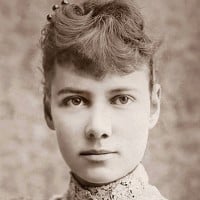 Nellie Bly was a groundbreaking investigative journalist who famously went undercover in a mental institution to expose the harsh conditions, leading to significant reforms. Her around-the-world race against time in 1889, inspired by Jules Verne's "Around the World in Eighty Days," captivated the public and demonstrated her adventurous spirit and commitment to investigative journalism. Bly's pioneering work opened doors for women in journalism and brought attention to social issues.
Nellie Bly was a groundbreaking investigative journalist who famously went undercover in a mental institution to expose the harsh conditions, leading to significant reforms. Her around-the-world race against time in 1889, inspired by Jules Verne's "Around the World in Eighty Days," captivated the public and demonstrated her adventurous spirit and commitment to investigative journalism. Bly's pioneering work opened doors for women in journalism and brought attention to social issues.
 Nellie Bly was a groundbreaking investigative journalist who famously went undercover in a mental institution to expose the harsh conditions, leading to significant reforms. Her around-the-world race against time in 1889, inspired by Jules Verne's "Around the World in Eighty Days," captivated the public and demonstrated her adventurous spirit and commitment to investigative journalism. Bly's pioneering work opened doors for women in journalism and brought attention to social issues.
Nellie Bly was a groundbreaking investigative journalist who famously went undercover in a mental institution to expose the harsh conditions, leading to significant reforms. Her around-the-world race against time in 1889, inspired by Jules Verne's "Around the World in Eighty Days," captivated the public and demonstrated her adventurous spirit and commitment to investigative journalism. Bly's pioneering work opened doors for women in journalism and brought attention to social issues.The Contenders
11 John Peter Zenger
12 Joseph Pulitzer
13 Benjamin Franklin
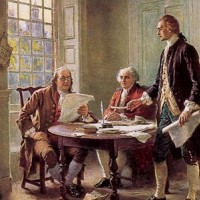 Benjamin Franklin (January 6, 1706 – April 17, 1790) was an American polymath who was active as a writer, scientist, inventor, statesman, diplomat, printer, publisher, and political philosopher. Among the leading intellectuals of his time, Franklin was one of the Founding Fathers of the United States,... read more
Benjamin Franklin (January 6, 1706 – April 17, 1790) was an American polymath who was active as a writer, scientist, inventor, statesman, diplomat, printer, publisher, and political philosopher. Among the leading intellectuals of his time, Franklin was one of the Founding Fathers of the United States,... read more
 Benjamin Franklin (January 6, 1706 – April 17, 1790) was an American polymath who was active as a writer, scientist, inventor, statesman, diplomat, printer, publisher, and political philosopher. Among the leading intellectuals of his time, Franklin was one of the Founding Fathers of the United States,... read more
Benjamin Franklin (January 6, 1706 – April 17, 1790) was an American polymath who was active as a writer, scientist, inventor, statesman, diplomat, printer, publisher, and political philosopher. Among the leading intellectuals of his time, Franklin was one of the Founding Fathers of the United States,... read more
14 Dorothy Day
15 John Wilkes
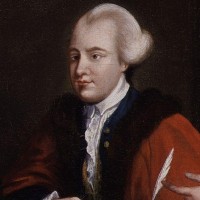

16 Peter Sabroe
17 Margaret Bourke-White
18 Dorothy Parker


19 Robert Capa
20 Barbara Walters


21 Nina Bang
22 Veronica Guerin
23 Seymour Hersh
24 William Howard Russell
25 Louis Pio
8Load More
PSearch List